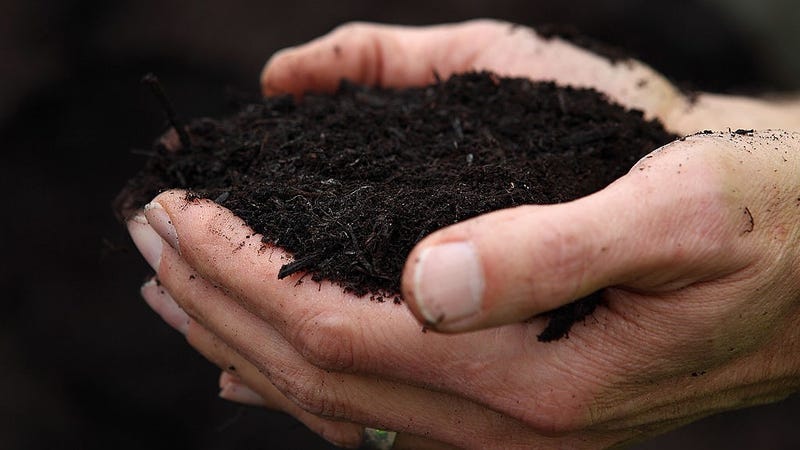
The phrase 'ashes to ashes, dust to dust,' is taking on new meaning as some people have plans of being cremated after they pass away and have their remains turned into earth-friendly compost.
Human composting, or natural organic reduction, takes bodies and makes them into nutrient-rich soil. People can have their remains donated to a body farm for a more green-friendly burial.
Washington became the first state to legalize human composting in 2019, and Colorado became the second last May.
On Sunday, the first legally composted human remains in Colorado were laid to rest, according to KUSA.
The Natural Funeral held the ceremony at the Colorado Burial Preserve in Florence, CO, as many gathered for the event.
"I think this is the first time anything quite like this has happened -- certainly in Colorado, maybe anywhere," the company's managing partner Seth Viddal said.
So, how does it work? The company website further explained the process of human composting and gave details about the ceremony itself.
"Laying out is a term generally associated with washing and blessing the body at death," The Natural Funeral said. "With this laying out of remains, we are blessing the earth with transformed human remains. The ceremony will include music, inspirational words, and an opportunity to see our Colorado-made Chrysalis vessel in which this miraculous transformation takes place."
The person's remains were placed inside of the vessel in September, and it was filled with with wood chips, alfalfa, straw and "a lot of microbial beings," according to NBC News.
"We’re going to mix flower seeds and natural native grass seeds into that soil and the group is going to be invited to participate in giving that soil back to this preserve," Viddal said.
It does cost a bit more to have your remains composted than go through a more traditional cremation, with a price tag of about $7,900. The average price of a cremation in Denver costs between $3,000 and $5,000, per KUSA.
The Natural Funeral said that they already have 15 other sets of remains for human composting. The process is gaining interest, and Viddal mentioned the company has big expectations going forward, as they have already expanded their capacity to 48 vessels.
"We are anticipating a lot of growth," Viddal said.
He went on to mention how special the process of human composting can be for the family, not just the environment.
"The cycle of life is truly going to continue as a result of what is happening today," Viddal said. "More than anything, this proves that we can do this. That this can be very meaningful to families. That this can be a very sacred way to deal with a loved one following loss."


